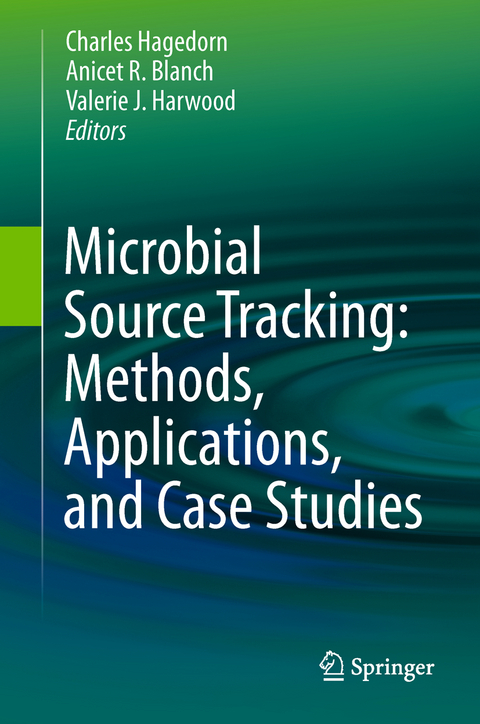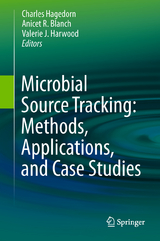Microbial Source Tracking: Methods, Applications, and Case Studies
Springer-Verlag New York Inc.
978-1-4419-9385-4 (ISBN)
The three editors of the book, all with extensive MST expertise, have developed chapters and invited authors who reflect the rich diversity and truly international scope of MST. The unifying theme throughout the book is the design of more standardized approaches to MST that include performance criteria (regardless of method or organism), plus recommendations for field study design and MST implementation. The editors intend that this book will serve as a valuable reference for all those who are involved with
Chapter 1: Overview.- Chapter 2: Performance Criteria.- Chapter 3: Library-dependent Source Tracking Methods.- Chapter 4: Library-Independent Source Tracking Methods.- Chapter 5: Viruses as Tracers of Fecal Contamination.- Chapter 6: Phage Methods.- Chapter 7: Pathogenic Protozoa.- Chapter 8: Chemical-Based Fecal Source Tracking Methods.- Chapter 9: Statistical Approaches for Modeling in Microbial Source Tracking.- Chapter 10: Mitochondrial DNA as Source Tracking Markers of Fecal Contamination.- Chapter 11: Community Analysis-Based Methods.- Chapter 12: Public Perception of and Public Participation in Microbial Source Tracking.- Chapter 13: Use of Microbial Source Tracking in the Legal Arena: Benefits and Challenges.- Chapter 14: Applications of Microbial Source Tracking in the TMDL Process.- Chapter 15: Relating MST Results to Fecal Indicator Bacteria, Pathogens, and Standards.- Chapter 16: Minimizing Microbial Source Tracking at All Costs.- Chapter 17: Environmental Persistence and Naturalization of Fecal Indicator Organisms.- Chapter 18: Agricultural and Rural Watersheds.- Chapter 19: Case Studies of Urban and Suburban Watersheds.- Chapter 20: Beaches and Coastal Environmenta.- Chapter 21: Source tracking in Australia and New Zealand: Case Studies.- Chapter 22: Microbial Source Tracking in China and Developing Nations.- Chapter 23: A National Security Perspective of Microbial Source Tracking.- Chapter 24: Applications of Quantitative Microbial Source Tracking (QMST) and Quantitative Microbial Risk Assessment (QMRA).- Chapter 25: Food Safety and Implications for Microbial Source Tracking.- Chapter 26: Training Future Scientists: Teaching Microbial Source Tracking (MST) to Undergraduates.- Index.
| Zusatzinfo | XIV, 642 p. |
|---|---|
| Verlagsort | New York, NY |
| Sprache | englisch |
| Maße | 155 x 235 mm |
| Themenwelt | Medizin / Pharmazie ► Medizinische Fachgebiete ► Arbeits- / Sozial- / Umweltmedizin |
| Studium ► Querschnittsbereiche ► Infektiologie / Immunologie | |
| Studium ► Querschnittsbereiche ► Prävention / Gesundheitsförderung | |
| Naturwissenschaften ► Biologie ► Mikrobiologie / Immunologie | |
| ISBN-10 | 1-4419-9385-1 / 1441993851 |
| ISBN-13 | 978-1-4419-9385-4 / 9781441993854 |
| Zustand | Neuware |
| Haben Sie eine Frage zum Produkt? |
aus dem Bereich




